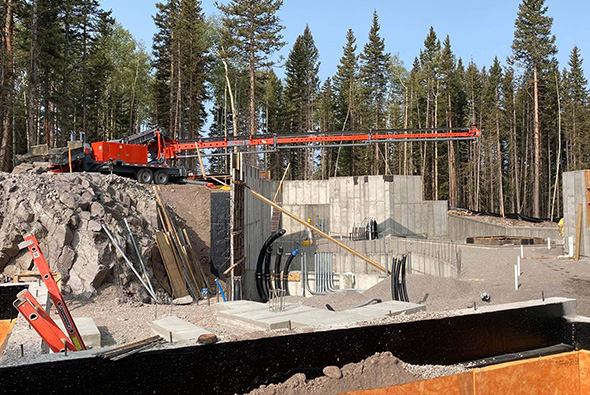From homes to commercial buildings, every structure needs a solid structural foundation to remain stable. Structural engineers play a crucial role in designing and maintaining the structural integrity of buildings. They adopt modern approaches to ensure that structures can withstand wind, earthquakes, and heavy loads.
Many people think they only need structural engineers when building a new property. However, you need them whenever you experience structural or foundation issues. In areas with strict building regulations, you need them for minor changes. For example, you may need structural engineers in Surrey for renovations or modifications.
In this post, we will explore every scenario when you need structural engineers.
When You Need Structural Engineers?
You need skilled and qualified structural engineers when:
Constructing a New Building
When constructing a new building, structural engineers are required to ensure that the design meets safety and stability standards. They analyse different factors, such as soil conditions, load-bearing capacity, and environmental impact before finalising a design.
They collaborate with architects to create a blueprint that shows the building’s strength and functionality. They calculate the weight-bearing capacities of walls, columns, and foundations, to ensure that the structure can support its intended use.
Without their expertise, there’s a risk of miscalculations that can lead to long-term structural issues and safety hazards. It can even result in legal complications due to non-compliance with building codes.
Modifying Load-Bearing Walls
Renovations often involve changing the layout of a home. Removing or modifying load-bearing walls requires the expertise of structural engineers. These walls support the weight of the floors and roof above. Improper removal can lead to serious structural failures, such as sagging ceilings or collapsing walls.
Structural engineers check whether a wall is load-bearing and guide reinforcement options. They also ensure that any upgrades adhere to local building regulations. It mitigates the risk of legal and safety issues in the future.
Adding an Extension or Additional Floors
Adding an extension or an extra floor to an existing building increases the load on the structure. Therefore, careful evaluation by structural engineers is required. They check whether the existing foundation can handle the additional weight and recommend necessary reinforcements.
Otherwise, adding extra floors or extensions can lead to cracks in the walls, foundation settlement, or even structural failure over time. Structural engineers ensure that the new additions integrate safely with the existing structure. It preserves the building’s overall stability and integrity.
Dealing with Foundation Issues
Foundation problems, such as cracks, uneven floors, or sinking, are serious concerns that require the expertise of structural engineers. These issues are often caused by poor soil conditions, water damage, and improper construction methods.
Structural engineers inspect the foundation to identify the root cause of the problem. After that, they suggest corrective measures such as underpinning, reinforcement, or improved drainage systems. Addressing foundation issues early prevents costly repairs and keeps your building stable in the long run.

Buying or Selling a Property
Before purchasing or selling a property, structural engineers can inspect it to assess its overall structural condition. This is particularly important for older buildings or homes that show signs of damage. A detailed structural report provides valuable insights for buyers and sellers.
It helps them identify potential risks and necessary repairs. This can affect property value, negotiation terms, and long-term investment decisions. Without this assessment, buyers may invest in a property with compromised structural stability.
Experiencing Structural Damage
Natural disasters such as earthquakes, floods, or landslides can severely impact a building’s structure. Even if the damage appears minor, it can lead to the development of unseen weaknesses.
For example, in Reading, floods and windstorms can damage buildings. You need to hire structural engineers in Reading after such disasters to estimate the extent of damage and recommend necessary repairs. Their assessment is also crucial for insurance claims, as it provides evidence of damage and repair requirements.
Installing Solar Panels
Many homeowners and businesses install solar panels or heavy equipment, such as HVAC systems, on their roofs. However, not all roofs are designed to bear additional loads. Improper installation can lead to roof failure or stability issues.
Structural engineers can assess the roof’s capacity and determine reinforcement requirements. They also ensure that the weight is evenly distributed. This prevents potential structural issues and extends the lifespan of the building.
Repairing or Replacing a Roof
Roofs are essential for protecting a building from environmental elements. However, they also need structural support. If you plan to repair, replace, or install a new roof with heavier materials, you need structural engineers. They evaluate whether the existing framework can handle the load.
They also provide guidance on reinforcements or design adjustments to prevent roof sagging or collapse. It ultimately reduces the risk of future structural problems.
Structural engineers play a critical role in ensuring the safety and durability of buildings. Whether you’re constructing a new property or dealing with potential damage, their expertise helps prevent costly mistakes.



